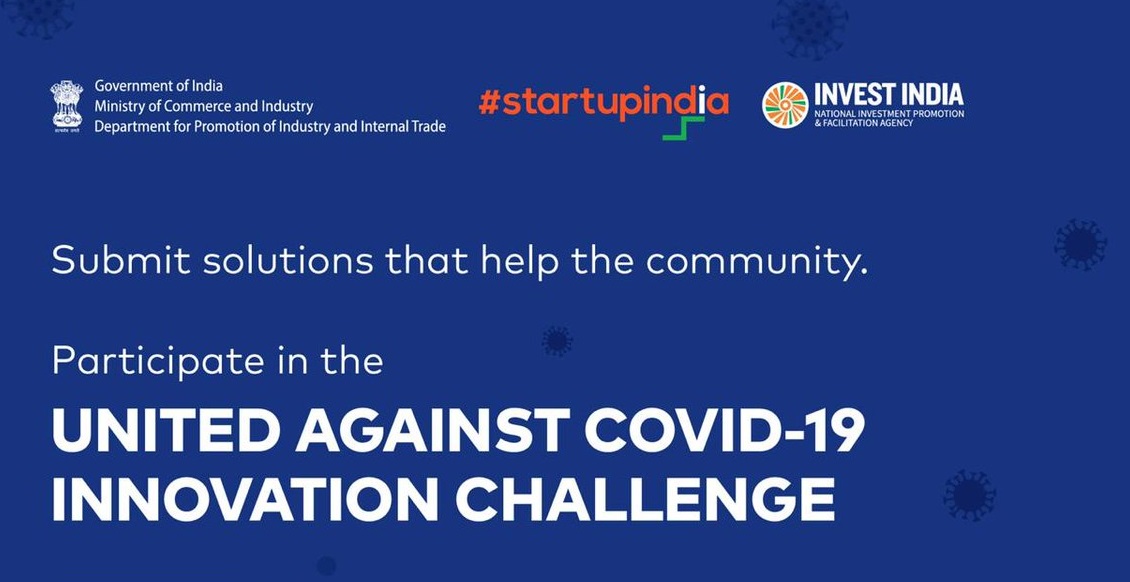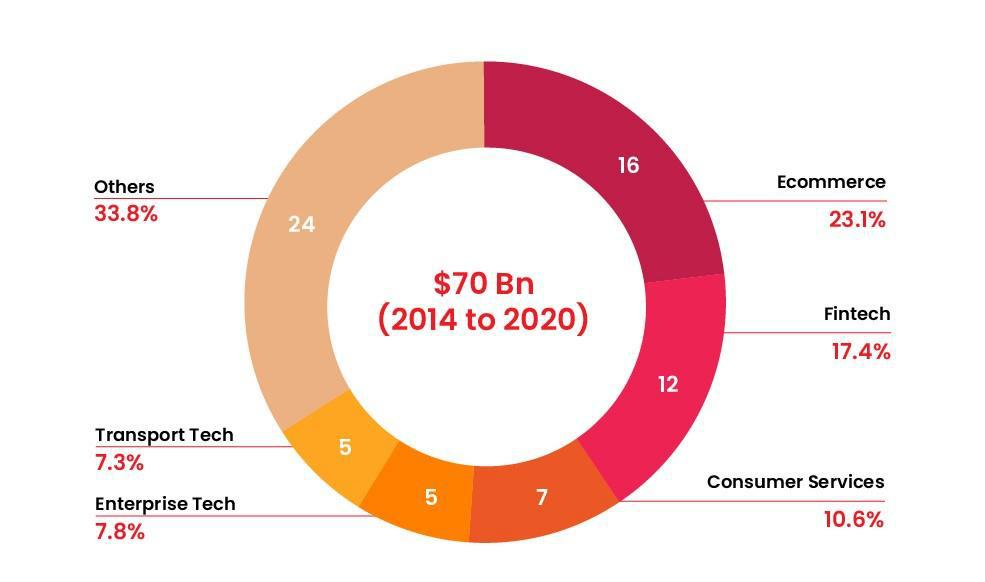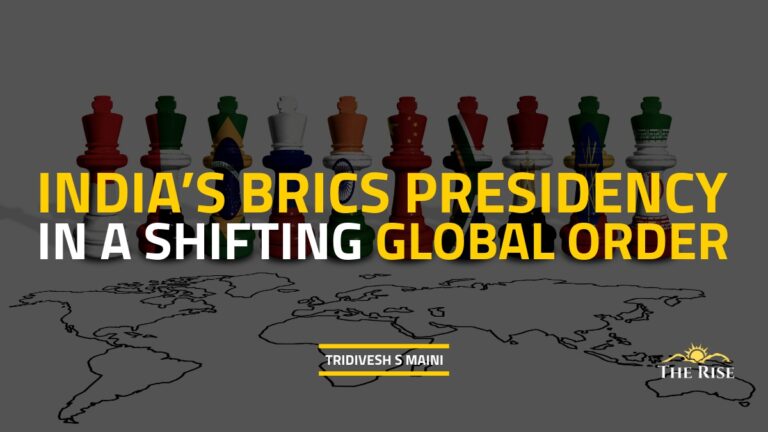The article analyses the importance of startups in an economy with a focus on India. It mentions the contributions of the startups before and during the ongoing pandemic and how this is expected to unfold in the future for the benefit of the nation.
Over the centuries, it has been observed that the economies of countries develop in a particular fashion. Initially, the economy is dependent on small mom-and-pop shops to provide basic services which develop over time, adjust with the demand and expand their business by investing in infrastructure, opening up more branches and, of course, the increasing requirement for manpower as the operations grow.
And here we are, back to the basic economic concept of the flow of money in the economy. Alongside all this is the government building the support system for the economy and its population to reap the benefits of the growth. Now, as the economy grows there is increased capital availability, better infrastructure and, most importantly, availability of information. This leads to the people who have skills and ideas to jump into entrepreneurial ventures. Indian economy is no different.

Our economy has been majorly driven by mammoth corporates in both industrial and service sectors since the years after liberalization until now when the startups have started making a significant contribution. With the population touching 139 crores, we have the 2nd largest population in the world, and with this big a base and a yearly growth of about 1.09%, the market size is too big to be served by the existing infrastructure.
It was well known to the government that the increasing demands of the population can’t be met with the existing corporates and infrastructure. The corporates would always have gone for the safe bet as they have shareholders to be answerable to, but we needed something dynamic, more risk-taking.
The government of India launched the Startup India and Standup India Programmes in the First half of the year 2016. Through these programmes, the government encouraged different segments of the Indian populace to start their own ventures. In addition to this and a slew of other measures, like a liberal tax regime, easy capital availability from banks and NBFCs, less stringent company law compliances etc, the government created a favourable budding ground for Startups.-
Startups providing help in COVID-19

With the flexible policies, the startup system grew and in the past years, we have things that we had not even thought of 5 years back. Grocery delivery at home, getting a cab, seeing a doctor, finding a date, people to clean your sofa, working from home, studying from home, thousands of apps and websites to buy from and all this available just with a few clicks on your mobile or laptop!! Isn’t that great?
And then we struck the COVID-19 pandemic. The infrastructure made by these startups and the digitization that Indians went through in the last 5 years helped the people and the Indian economy to navigate through this time. There are companies like Zomato along with Delhivery who rolled out their ‘Feeding India‘ programme to source oxygen concentrators to supply to hospitals. Delhivery has also been chartering planes to import oxygen concentrators.

Health tech startup Blackfrog has been working through the pandemic to improve the efficiency of the immunization supply chain. Its portable battery-powered refrigeration device Emvolio is a plug & play solution that assists in the last-mile transportation of vaccines. While PharmEasy is using its network of 80,000 retailers and 5,000 distributors to speed up the vaccination drive, Practo with its solutions is helping people consult with doctors without the need to visit the clinics and expose them to the virus. Cult.fit is helping people stay healthy by doing exercise and practising mindfulness at home. Spice Money has been helping rural citizens across 18,000 pin codes to register for COVID vaccination through its banking correspondents. HealthifyMe have also opened their platforms to assist individuals in covid vaccination. Tech startups have been developing innovative products to help the nation in these trying times, like the Pune-based Nocca Robotics which created a cost-effective, life-saving ventilator, complete with clinical validation during the early days of the pandemic.
Also Read: Understanding Indian Startup Ecosystem
While there are startups that are making contributions such as above, there are also startups that are making silent contributions by not letting go of their employees and rather managing to stay afloat by just reducing the salaries a little; startups that have got medical insurance cover increased for their employees; startups doing innovation like making drones for the delivery of vaccines and medical supplies. Where we would have been if not for the startups!!
Entering uncharted territories through innovation
While the startups have been helping our country navigate through the pandemic, some by making our lives easy in COVID quenching our need to go out fetching things and some by creating innovative methodologies to speed up the movement of medicines and vaccines, they have not just created innovative ways to satisfy the existing needs of the Indian consumers, but have also increased their level of acceptance for subpar products and services. They have created latent demands in the markets which were never heard of before and have made the entire world a local market.

Some companies have made a mark and changed the Indian market landscape; like Ola and Uber have allowed consumers to book their transport at the click of a button. They are competitively priced and have rendered the previously usurping taxi drivers incapable of charging exorbitant and unreasonable charges. They have mixed it with GPS to enable security for the passengers and particularly for the women. So going home late from the office is no more a scary deal. Rapido is another startup that caters to people who don’t mind opting for a ride on a bike and, therefore, can pay less.
Although Paytm initially was a platform for making payments but today, it has emerged as one of the small banks licensed by RBI. Paytm has brought onboard almost all electricity regulators, DTH Providers, mobile companies and even schools. Also, Paytm has helped even small vendors in unorganised sectors by providing them with a free QR code. Not just this, the once payment machine network charging heavy installation charges that was exclusively provided by banks has been shaken by Paytm. It provides small shops with the small payment wipe machines which are easy to operate and are available at much lesser cost.

And there are others like Unacademy, Simplilearn, Byjus which have helped students, working professionals and even anyone who has an interest in a topic to study it online. They have helped not just a student in understanding the Maths concept of his/her class syllabus but also helped homemakers learn baking cookies at home and start a homemade cookies business!
And not everything is about efficiency and work. They have taken care of our comfort and leisure too. From Bigbasket and Grofers making daily chores easy to MakeMyTrip and Ixigo making ticket bookings easy to getting us the best hotel deals, from Nykaa catering to our fashion needs to Chaayos and Chai Point delivering the perfect blend of teas at our table. From 1mg and Netmeds delivering our medicines to Urban Company providing home miscellaneous services and salon services right at the comfort of our homes.
It is expected that India needs more than 100 million jobs a year and India plans to achieve $5 trillion GDP by 2025 that means we require more economic activity. And the startups are expected to play a big role in it. With many startups now scaling heights towards becoming unicorns, we need more such to come along to achieve our target of $5 trillion economy. We need more jobs, more consumer spending, more growth to lure investors and in this entire process, we the people of our country are growing.
Also Read: Indian Startup Ecosystem Third Largest, Behind China & US: A Comparison of Three Growth Engines
According to a report, India received $70 Billion as investment in startups from 2014-2020. The bifurcation of the funding in different sectoral startups is as:

This $70 Billion figure went into our GDP. With the increase in GDP, the infrastructure, services and facilities in our country will grow which ultimately increase the standard of living of the people and will provide us productive and efficient ways to carry our work. Well, that’s a Win-Win!! It won’t be wrong to say that startups are the new engines of growth for India. They are making a significant contribution not just in terms of adding to the GDP numbers but also adding to innovative solutions to problems and they have proved their worth in helping India fight against COVID. With the technology & the support ecosystem improving many folds, and if things go well, it won’t be long before India will be called the land of startup paradise.
References:
- Impact Of Startups On Indian Economy by Mona Girnara- ResearchGate
- Nasscom’s March 2021 Publication- India’s Deeptech Startups
- Inc24 Plus Report 2020- The State of Indian Startup Ecosystem
- Asian Development Bank Institute- June 2020 Report- The Startup Environment and Funding Activity in India
- Startupindia.gov.in – “The Rise of e-commerce”- IIT Kharagpur



















































